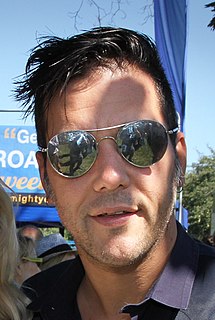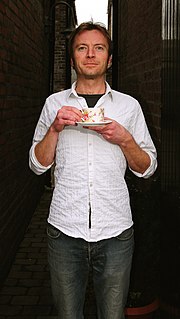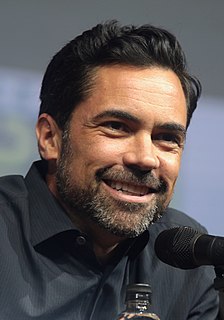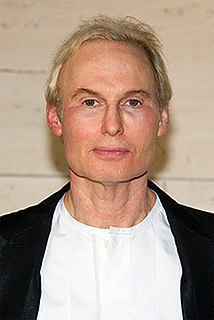A Quote by Cameron Crowe
I think there's always satisfaction that comes from digging in and telling a story and being on the front line and writing about it. I think there's a venue available if you look. Even print journalism is in good shape in areas.
Related Quotes
I think that people have to have a story. When you tell a story, most people are not good storytellers because they think it's about them. You have to make your story, whatever story it is you're telling, their story. So you have to get good at telling a story so they can identify themselves in your story.
I think the benefit of being a writer is that I'm looking for the subtext on the page, because all good writing has subtext. And as a writer, you look at the big scope of things, the big story, rather than just your individual story line, because I think it's important to know what you're in and how you fit into it.
From about ninth grade on, I knew I was a writer at heart. I had fantasies of being a great novelist, but I thought that seemed like an iffy way to try to make a living. So I tried journalism while in college, and really liked it. But even in journalism, I've always pursued ways to be somewhat literary, whether writing a column or writing books.
Every story is flawed, every story is subject to change. Even after it is set down to print, between covers of a book, a story is not immune to alteration. People can go on telling it in their own way, remembering it the way they want. And in each telling the ending may change, or even the beginning. Inevitably, in some cases it will be worse, and in others it just might be better. A story, after all, does not only belong to the one who is telling it. It belongs, in equal measure, to the one who is listening.
What I try to do is to make your face look like it did when you were younger. I always tell people it's not just about filling in the lines, but re-creating the shape of your face as it was in your early- or mid-twenties. People see the lines as they age but they don't see how their shape is changing. I think it's all about restoring the contours. You can fill in a line and it makes you look a little better, but it doesn't make you look younger.
Knowing that a story needs to be told is a great motivator, even if telling a given story comes at a price. Writing Hunger has been the most difficult writing of my life, and it's the rawest and perhaps most necessary. We'll see how people take it. I always strive to write beyond personal catharsis because though I write first and foremost for myself, I do recognize that I need to look outward as much if not more than I look inward, so the reader has something with which they can engage.
This is our story to tell. You’d think for all the reading I do, I would have thought about this before, but I haven’t. I’ve never once thought about the interpretative, the story telling aspect of life, of my life. I always felt like I was in a story, yes, but not like I was the author of it, or like I had any say in its telling whatsoever.
I'm not very eloquent about things like this, but I think that writing and photography go together. I don't mean that they are related arts, because they're not. But the person doing it, I think, learns from both things about accuracy of the eye, about observation, and about sympathy toward what is in front of you... It's about honesty, or truth telling, and a way to find it in yourself, how to need it and learn from it.






































